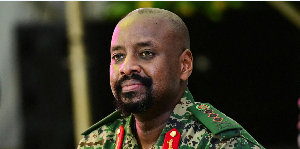It is widely reported that on Tuesday, the 11th of September 2012, the US consulate in the Libyan city of Benghazi was attacked by a group of Muslims. The attack, we understand, led to the untimely death of the US ambassador to Libya, Mr Christopher Stevens, and three other US officials.
The violent protests which began in Egypt and spread to Libya, have now stretched across North Africa, the Middle East and beyond, with crowds ransacking western embassies. Some leaders in the Islamic world have moved swiftly to blame a little-known extremist Muslim group for the attack on the US consulate and the death of the US ambassador.
Interestingly, the anarchy currently being witnessed in the Muslim world, unlike the ‘Arab Spring’, is not triggered by dictatorial governance or corrupt activities of politicians, but by a low-profile movie, titled, ‘Innocence of Muslims’, made and released about 10 weeks ago in a small corner of the US.
The movie, regarded by many as anti-Muslim or anti-Islamic propaganda tool, has rightly been condemned by a number of western leaders as outrageous. It seems to portray Muhammad as a child abuser, Casanova, endorser of salvage killing, and a bogus prophet, which of course is colossally repulsive and need to be vehemently condemned.
But I find it extremely difficult to comprehend why people would attack or kill individuals just because a movie that apparently mock their religion was made and released in the victims’ (the attacked persons’) home country. This is obviously illogical, senseless, and indeed one of the vilest injustices.
This of course is not the first time a description of Muhammad and/or Islam by a non-Muslim has resulted in mass protests, violence and even terrorist attacks. One of such incidents occurred in 2005 when a Danish newspaper published 12 apparently harmless cartoons of the prophet; dozens of people lost their lives in the protests that ensued. Similar mayhem arose when a US based pastor threatened to burn the Quran in public.
On 29th August 2004, ‘Submission’, an 11-minute film that criticized the treatment of women in Islam was broadcast on a Dutch broadcasting network. The release of what was viewed by many as an educative film aroused controversy among Muslims. Two months later (2nd November 2004), the director, Theo van Gogh, was assassinated by a Dutch-Moroccan Muslim, Mohammed Bouyeri. Van Gogh was shot eight times and stabbed several times.
The decision to come up with this commentary is motivated by comments made during a phone-in programme aired on BBC Radio 5 Live, two days after the attacks on the US Consulate in Benghazi. Over 50% of the many Muslims who called tried to justify the action of the violent protesters and attackers.
When asked as to why other religious faiths such as Christianity do not usually respond violently to the mockery that they are persistently subjected to, a considerable number of the Muslims argued, that the scorn and insults directed against Christianity are not as massive and outrageous as those hurled against Islam. But is this really true? I don’t think so. Various people have said very disrespectful and distasteful things about Christianity through films/movies, yet not a finger has been laid on any of them by Christians.
In 2003 Dan Brown published a controversial novel, ‘The Da Vinci Code’ which was dramatized in 2006. In this work, Brown suggests among other things that Jesus Christ and Mary Magdalene, the prostitute who later became a disciple, were in a relationship and that the union produced a daughter. This idea was probably inspired by the Gospel of Philip (a New Testament Apocrypha), which views Mary as Jesus’ companion, and perhaps even his partner.
There are in fact a couple of documentaries and videos that go to the extent of depicting Jesus Christ as one who had relentless illicit sexual relationship with Magdalene, the prostitute. But the fact that some miserable elements think this way does not make it true; so Christians tend to ignore such pathetic, attention-seeking entities, and move on.
In 2005, a documentary film, ‘The God Who Wasn't There’, written and directed by the atheist, Brian Flemming was released. The film questions certain vital aspects of the Christian faith, including the existence and biblical account of Jesus Christ, which Flemming refers to as a myth and not historical.
In his novel, ‘The Lost Symbol’ published in 2009, and due to be made into a movie, Dan Brown again seems to suggest that the Bible is an esoteric tale written by mankind, and contains concealed instructions for harnessing humankind’s innate God-like abilities; and thus not meant to be interpreted as the instructions of an omnipotent deity.
Even though Bill Maher’s 101-minute documentary film, ‘Religulous’ was meant to mock various organized religious sects and religious belief, over 55 minutes is used to blatantly ridicule Christianity alone. Interestingly, only 15 minutes or less is dedicated to mocking Islam. One thus wonders why he did not title the film ‘Christigulous’ as over %55 of the documentary mocks Christians. Again, Maher is tremendously soft on Islam and the Muslims he interviews in the film, but extremely arrogant and disrespectful towards Christianity and the Christians that he interacts with. Why is he this bias? Your guess is as good as mine.
The enormity of the ordeal that the Roman Catholic Church alone has been and continues to be subjected to, completely dwarfs the abuse suffered by Islam; yet Catholics hardly respond violently to the ‘threats’ from their ‘assailants’. There are numerous articles, documentaries and films or movies out there that paint the Papacy incredibly black, and unjustifiably accuse the entire leadership of the Roman Catholic Church of countless outrageous offenses.
People have come up with false documents depicting the Pope as the satanic beast/dragon (with the number 666) mentioned in the Book of Revelation. Catholicism has been dubbed idol-worshipping religion by numerous groups and individuals. Yet, the over 1 billion members of the Faith do not respond violently to their critics.
Modern Christianity, particularly Catholicism, has almost always used not violent protests or assaults, but peaceful dialogue to express its resentment over unjustified and repugnant allegations, to put some sense into the empty heads of its ignoramus mockers, to clarify any misunderstanding of the Faith, and to redeem any unfairly tainted image. So why can’t Muslims do the same?
It appears to me, that the persistent attack on critics of Islam by some radical Muslims is down to the wrongful interpretation of those passages in the Quran that seem to encourage believers to persecute infidels. Mockers of Islam are viewed by these extremists as infidels; hence, the tendency to attack them. Unfortunately, some Muslims deliberately refuse to welcome the authentic interpretation of certain portions of the Quran, so they could use them as an excuse to inflict pain on their fellow human beings. That Muhammad was a holy man may never be questioned; however, no one would hesitate to question the authenticity of the ‘holiness’ of a person who endorses violence and assaults.
Thankfully, majority of Muslims, including my very good friend, Zachariah Yakubu, who wouldn’t harm a fly let alone a human being, have a more mature and humane approach to the interpretation of the Quran, particularly those passages that appear to endorse violence. The giant task for them now is bringing their wayward brethren to embrace the true meaning of passages in the holy book, the Quran.
It is hugely unreasonable for us to expect all outsiders (i.e. people belonging to other faiths or non-believers) to understand our religion exactly the way we understands it. It is about time extremist Muslim groups realized, that we find ourselves in a world in which people’s right to express their views, however distasteful, is considerably guaranteed and defended; and that no one has ever succeeded in putting out a fire with fire.
Emmanuel Sarpong Owusu-Ansah (Black Power) is an Investigative Journalist, a researcher and the author of Fourth Phase of Enslavement (2011) and In My End is My Beginning (2012). He may be contacted via email (andypower2002@yahoo.it).
Religion of Monday, 17 September 2012
Source: Owusu-Ansah, Emmanuel Sarpong














